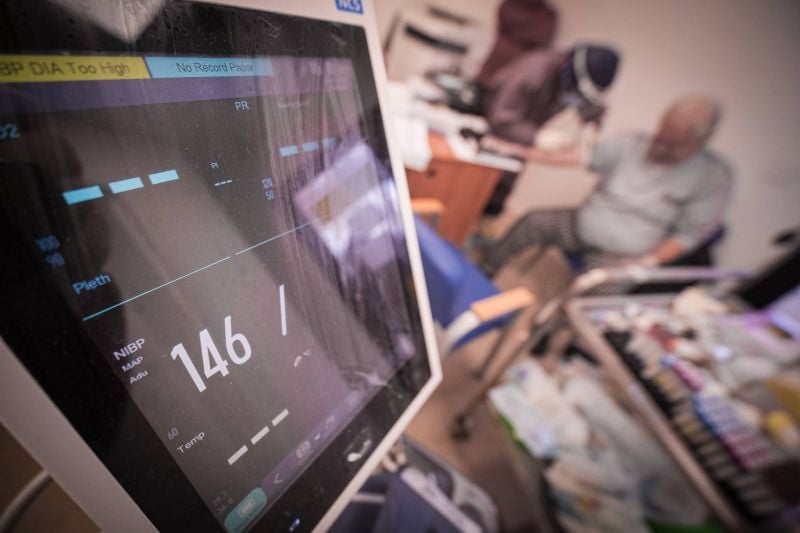
Although new infections are down, hospitals are still stretched thin. (Credit: João Sousa/L’Orient Today)
BEIRUT — The COVID-19 situation in at least some hospitals is on the cusp of stabilization, but ICU capacity remains a major obstacle for facilities across Lebanon, with over 900 patients requiring intensive treatment as of Sunday.
“The situation in the ICU is still dramatic, but we’re having more space” in the regular ward, said Elie Gharios, the medical director of Mount Lebanon Hospital.
Over 600 patients have been admitted to his ICU since September, with the hospital scrambling to maintain standards of care. COVID-19 ICU patients stay in the hospital longer than the average patient, sometimes for over a month, Gharios told L’Orient Today.
“There’s been fewer infections in the past couple of days, which might signal that we’re nearing a downward slope,” he said.
Lebanon recorded 2,139 cases on Sunday, marking the lowest daily increase since a full-fledged lockdown came into effect on Jan. 14. However, a high number of people are still dying from complications, with 51 fatalities recorded Sunday, bringing the pandemic’s overall death toll to 3,082.
The country is still not out of the woods yet, Gharios said, with daily infections needing to drop below 500 before Lebanon can shift focus.
Ziad El Khoury, the medical director of Hôpital Notre Dame des Secours in Jbeil, said more time is needed before pressure on the system eases.
“The situation in the country has stabilized, but not yet in the hospitals,” he said. “We will see in two weeks, we can hope [for that].”
Lebanon has managed to flatten the curve, he said, with “a downward trend at the country level” expected.
“If we weren’t locked down, it would have been catastrophic,” he noted.
The lockdown, which shuttered all nonessential businesses after an unmitigated spike in daily infections over the holiday period, is set to be re-evaluated this week, the head of Parliament’s health committee, MP Assem Araji (Future/Zahle), told Al-Anbaa Online.
Infectious disease specialist Mona Youssef told L’Orient Today the “there’s been a slight improvement, but more is needed.”
Meanwhile, at Mount Lebanon Hospital, management is looking into “inventive” ways to expand ICU capacity — but acquiring nurses and doctors to man the wards is proving difficult.
“We can’t set up ICU beds without the requisite staff,” said Gharios, noting the high cost of equipment and maintaining operations, which totals around LL1 billion per month.
“First off, it’s extremely costly and we’re going to end up with an overcapacity of equipment and beds when the pandemic is over,” he said.
This is extremely problematic, he said, as hospitals “over-equip” in the midst of an unprecedented economic, financial and monetary crisis.
His facility currently has some 50 ICU beds, but only needed 10 in normal times, before the pandemic brought the world to a standstill.